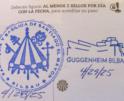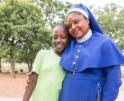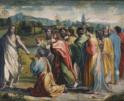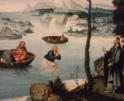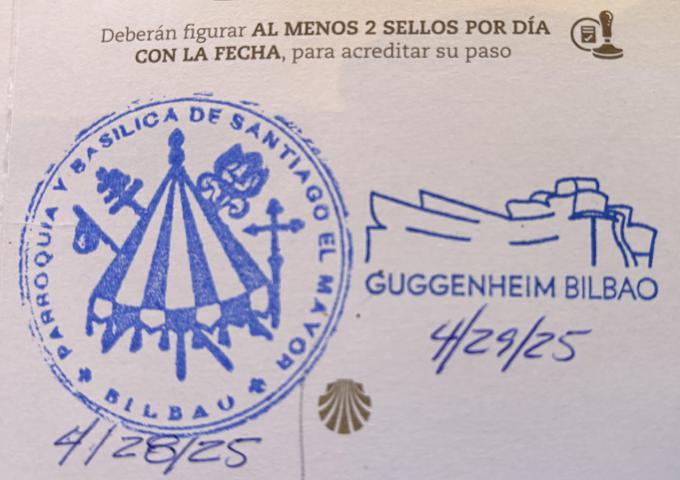
Faith
This northern route has taken me through Basque territory.
Leaving a seaside town, I nearly took the wrong path until an old man in a beret -- like the 19th-century Catholic Carlists -- called out. He pointed to the coastal route. "Thank me later," he said. He had walked the Camino 30 years ago. He recommended an albergue and a monastery where they brewed their own beer. So, I followed the coast as the sun burned off the morning mist, with my next two nights already spoken for.
Met a couple of Israelis up the road. Avi works for an online retailer. "When there's a complaint, we have to go back five steps to find fault and improve the system." I thought of applying the five backward steps that end up with a mistake, or even a sin -- that would be an excruciating line of questioning to hear in a confessional. Eyal works for a tech company. He asked about the Christian crosses on people's lawns -- joking: to keep out vampires? I found out later the superstitious Basques have long believed in "jentillak," non-Christians who wander the hills and forests, holding onto pre-Christian magical powers.
"Why would a Christian walk the Camino back then?" Eyal asked. I haven't been a spokesperson for Christianity in a while. I did my best. "Voluntary or they were assigned the Camino for their sins, or they did it for others. You could pay someone to walk it for you." I'd not really considered that there must have been professional pilgrims. On one hand, doing as Jesus would do -- so that others' sins may be forgiven . . . But for money. Not a bad gig, blasphemy notwithstanding. But we went through that centuries ago, I thought.
On some days, there was heavy rain. At a café one afternoon, the pope's funeral played on TV. Another pilgrim sat near the window speaking loudly on his phone. A coffee grinder whined; some jazzy elevator music played behind the chatter of the locals. I thought of a tribute I'd recently read by Bob Dylan:
"Pope Francis was a voice of mercy in a time of noise. He walked with humility, spoke with fire, and dared to love the unloved. He reminded the world that compassion isn't weakness, and faith doesn't have to shout to be heard... ."
In Bilbao, I visited their Guggenheim. Dizzying curves inside and out jarring after days of vertical stone columns and gothic arches. The huge shards of hammered aluminum swept up to the sky. At the entrance, this lunging curvature of metal resembled the bow of a ship, a possible homage to Basque shipbuilding and iron and metal working that have made the region an economic success story despite their contentious neighbors.
This northern route has taken me through Basque territory. Known even in ancient Roman times for its non-Roman customs, and later for their distinctive native dress, a language very different from their French and Spanish neighbors, for excellent cuisine and their own "national sport" -- Pelota, adapted in some places including the United States as "Jai Lai."
Tomorrow, I will leave the Basque Country home of Ignatius of Loyola, the founder of the Jesuits. Just knowing that he walked for days as a freshly released POW with a broken leg and a donkey loaded with books makes me feel some gratitude if not curiosity for more of that story.
Buen Camino!
Recent articles in the Faith & Family section
-
On the Camino: Jentillaks and jazzMark T. Valley
-
From the Eternal CityArchbishop Richard G. Henning
-
Sometimes, a Hero wears a Cape and a VeilMaureen Crowley Heil
-
Fire of loveScott Hahn
-
Scripture Reflection for May 4, 2025, Third Sunday of EasterFather Joshua J. Whitfield

